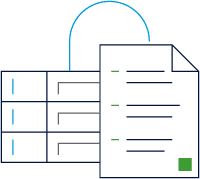AUTHOR

The personal income tax cuts proposed to commence 1 July 2024 originally legislated in 2018 will be realigned and redistributed under a proposal released by the Federal Government.
For some the impact will be less favourable than it would have been prior to the redesign, an illustration of these changes and savings has been summarised below:
| Income | Original Stage 3 Tax Cuts | New Stage 3 Tax Cuts |
| $30,000 | $0 | $354 |
| $40,000 | $0 | $654 |
| $60,000 | $375 | $1,179 |
| $80,000 | $875 | $1,679 |
| $100,000 | $1,375 | $2,179 |
| $120,000 | $1,875 | $2,679 |
| $140,000 | $3,275 | $3,279 |
| $160,000 | $4,675 | $3,729 |
| $180,000 | $6,075 | $3,729 |
| $200,000+ | $9,075 | $4,529 |
Although the tax cuts are less than expected, it can still be a great planning opportunity and it is important to start planning now for year end.
We have curated a list of top things to focus on when organising your tax affairs for the 2024 year-end, applicable to business, trusts and individuals.
Paying Superannuation on time before year end
Whilst most expenses are eligible for a deduction when incurred, superannuation is only deductible when it is paid and received, on time, by a complying superannuation fund.
Superannuation contributions need to be received by the fund by the 28th day of the end of the quarter. Therefore, the June quarter superannuation liability is due by 28 July and is often outstanding at year end. However, by paying the June quarter liability before 30 June the amount is deductible in the year it is paid provided the fund receives the payment by 30 June.
Prepaying and accruing expenditure for immediate deduction
From 1 July 2020, businesses with a turnover of less than $50 Million are eligible to deduct any prepayment that has a service period of less than 12 months, and all businesses can deduct prepayments that are either required under a Government law or cost less than $1,000.
From 1 July 2020, businesses with a turnover of less than $50 Million are eligible to deduct any prepayment that has a service period of less than 12 months, and all businesses can deduct prepayments that are either required under a Government law or cost less than $1,000.
Committing to staff bonuses before year-end
It is a common practice for a business to create a provision for payment of staff bonuses. However, a tax deduction is only available for staff bonuses to the extent that the business is ‘definitively committed’ to paying the bonus.
Therefore, a business looking to claim a deduction for current year bonuses should keep appropriate documentation to support approval of those bonuses prior to year-end.
Delaying Dividends until next year.
If your private company is wanting to declare a dividend prior to 30 June 2024 it may be beneficial to delay the payment of the dividend until 1 July 2024.
This will allow the dividend to be taxed to the individual shareholder under the new marginal tax rates.
Review invoicing and debtors
Review your invoicing for the 2024 financial year and postpone some of them until the 1 July 2024, if appropriate.
It is also important to review your debtors and write off any genuine bad debts that will not be recovered. This will be able to be deducted in the current year provided it is written off before year-end.
Unused Superannuation Contributions Caps
The annual concessional contributions cap is $27,500 for all individuals. For those with a super balance of less than $500,000 at the end of June 30 in the previous year, the rules allow you to carry forward your unused concessional contributions cap amounts from 1 July 2018. Unused amounts are available for a maximum of five years and expire after this.
Therefore, if you are planning on making a contribution to use your unused concessional contributions cap in the future, consider making the maximum contribution in the 2024 year.
To claim a deduction for superannuation contributions in your income tax return you must provide a signed notice (Section 290-170 notice) to your superannuation fund to notify them of your intention. You must receive an acknowledgement notice from the fund confirming your contribution, prior to the lodgement of your individual income tax return.
Managing Capital Gains
Managing the timing of capital gains is another way to take advantage of the tax cuts.
Capital gains tax (CGT) is calculated and payable on profits made on the sale of certain property.
A CGT event that triggers the capital gain or loss occurs at the date of signing a contract for the sale of property and not at the date of settlement. For this reason, sellers may want to avoid entering into a contract leading up to 30 June, if commercially viable.
Alternatively, sellers can consider a put and call option agreement. A put and call option agreement is a document that enables the prospective purchaser and a seller of a property to enter into an agreement to execute the document at a later date.
Typically, in this agreement the purchase price and other terms are set out and the buyer will pay some form of a deposit, however the parties do not enter into a formal contract until such time as the put option is exercised. Therefore, the sale of the property can be secured now without triggering the CGT event until a later date.
If capital gains have already been made in the 2024 year, you may care to consider disposing of another asset that will yield a capital loss.
Opportunities for Primary Producers
- Profit from forced disposal of livestock can be spread over a five-year period or electing to defer the profit to reduce the replacement cost of livestock. Any profit not used in the disposal year or any of the next five years would then form part of the assessable income in the fifth income year.
- Primary Production income averaging can be used to average the income of primary producers over a five year period. When a primary producer’s average income is less than their taxable income, they are entitled to an averaging tax offset, however if their average income is more than their taxable income this will be subject to pay complementary tax.
- Farming management deposits (FMD) allows primary producers to make tax deductible deposits into a FMD account if you meet certain conditions. When they are withdrawn these deposits count as assessable income for that year.
It is important to consider not only the tax but also the commercial implications of any such decisions. Any advice in this article is general only and does not constitute financial advice.
Get in touch
Whether you are looking to maximise deductions, manage capital gains, explore superannuation strategies, or leverage other tax-saving opportunities, our dedicated team is here to guide you every step of the say. We encourage you to explore the opportunities within this article and reach out if you have any further questions.




